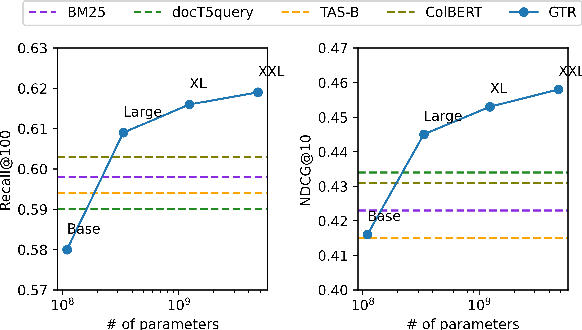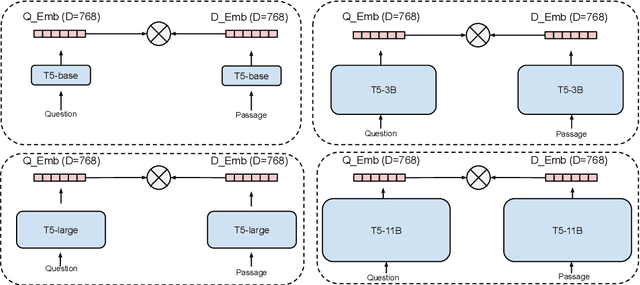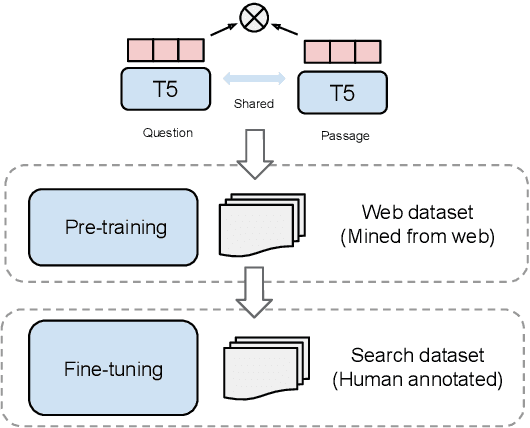Large Dual Encoders Are Generalizable Retrievers
Paper and Code
Dec 15, 2021



It has been shown that dual encoders trained on one domain often fail to generalize to other domains for retrieval tasks. One widespread belief is that the bottleneck layer of a dual encoder, where the final score is simply a dot-product between a query vector and a passage vector, is too limited to make dual encoders an effective retrieval model for out-of-domain generalization. In this paper, we challenge this belief by scaling up the size of the dual encoder model {\em while keeping the bottleneck embedding size fixed.} With multi-stage training, surprisingly, scaling up the model size brings significant improvement on a variety of retrieval tasks, especially for out-of-domain generalization. Experimental results show that our dual encoders, \textbf{G}eneralizable \textbf{T}5-based dense \textbf{R}etrievers (GTR), outperform %ColBERT~\cite{khattab2020colbert} and existing sparse and dense retrievers on the BEIR dataset~\cite{thakur2021beir} significantly. Most surprisingly, our ablation study finds that GTR is very data efficient, as it only needs 10\% of MS Marco supervised data to achieve the best out-of-domain performance. All the GTR models are released at https://tfhub.dev/google/collections/gtr/1.
 Add to Chrome
Add to Chrome Add to Firefox
Add to Firefox Add to Edge
Add to Edge